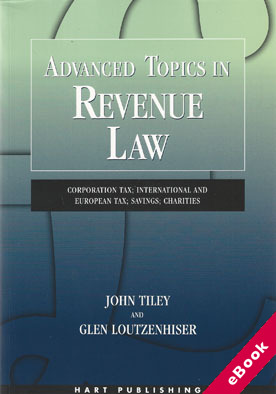
The device(s) you use to access the eBook content must be authorized with an Adobe ID before you download the product otherwise it will fail to register correctly.
For further information see https://www.wildy.com/ebook-formats
Once the order is confirmed an automated e-mail will be sent to you to allow you to download the eBook.
All eBooks are supplied firm sale and cannot be returned. If you believe there is a fault with your eBook then contact us on ebooks@wildy.com and we will help in resolving the issue. This does not affect your statutory rights.
The last several years have seen fundamental changes to the UK tax system. Nearly the entirety of the UK corporation tax and international tax rules have been rewritten by three new statutes the Corporation Tax Acts 2009 and 2010 and the Taxation (International and Other Provisions) Act 2010.
The UK has also implemented major new policies affecting the taxation of pensions, charities, savings vehicles, 'non-doms' and the foreign profits of UK companies. In addition, European Union law, and especially the case law of the Court of Justice of the European Union, has had an increasingly important impact on UK corporation tax and international tax law in particular.
This new book on advanced topics in UK tax law is derived from material previously found in John Tiley's major text on Revenue Law that has been expanded and comprehensively updated to take account of these developments. The book deals with Corporation Tax, International and European Tax, Savings and Charities, in a manageable and portable volume for law students and practitioners.
It complements the material on UK Income Tax, Capital Gains Tax, and Inheritance Tax found in Revenue Law, 7th ed, which is published simultaneously.Unlike other tax law books, this text explains the new rules found in CTA 2009, CTA 2010 and TIOPA 2010 in light of its legislative predecessors. The book contains extensive references to the new legislation and also to the former enactments in ICTA 1988 and elsewhere. Those familiar with the old law but wanting to find their way round the new will find this work particularly valuable.
The book is designed for law students taking advanced tax courses in the final year of their law degree course and for graduate students, but is intended to be of interest to all who enjoy tax law. Its purpose is not only to provide an account of the rules but to include citation of the relevant literature from legal periodicals and some discussion of or reference to the background material in terms of policy, history or other country's tax systems.